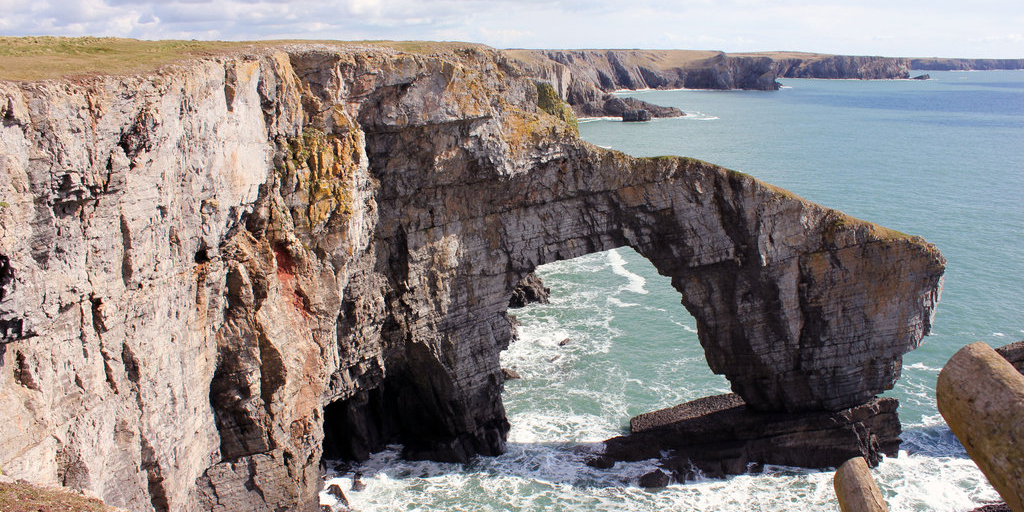This series of four blog posts provides an update on committee activity across the UK legislatures around the potential impacts of Brexit on environmental and agricultural policy. It also explores areas that will have indirect effects including devolution, trade and immigration. This series sign-posts to committee inquiries from over the summer/autumn and will cover 1) The National Assembly for Wales, 2) The Scottish Parliament, 3) The House of Commons and 4) The House of Lords (with recognition that Northern Ireland Assembly Committees remain dissolved).
This first post covers the National Assembly for Wales.
The next post will explore the work of the Scottish Parliament.
The National Assembly for Wales
1. Climate Change, Environment and Rural Affairs Committee
Inquiry into the Future of Agricultural and Rural Development Policies in Wales
Following the result of the EU referendum, the Committee launched an inquiry into the Future of Agricultural and Rural Development Policies in Wales.
The Committee’s report The Future of Land Management in Wales, published in March, sets out recommendations to both the Welsh Government and the UK Government. The report is divided into two parts. Part 1 addresses the immediate challenges facing Wales’s agricultural sector as a result of the decision to leave the EU. It explores access to the EU Single Market, funding following the end of the Common Agricultural Policy, regulatory frameworks, access to labour and transitional arrangements. Part 2 explores the potential of a model of payment and support for land management that is based on sustainable outcomes. A previous blog post summarises the report’s findings.
The Cabinet Secretary for Environment and Rural Affairs, Lesley Griffiths, accepted the majority of the recommendations. The Secretary of State for Environment, Food and Rural Affairs, Michael Gove, responded (PDF 196KB) to the Committee’s report in September. He states that the UK is not looking to retain membership of the EU Single Market, the UK Government will only establish UK common frameworks where necessary and that the outcome will be an increase in the decision making power of each devolved administration.
Inquiry into Marine Protected Areas in Wales
Launched in December 2016, the Committee has now completed its inquiry into the effectiveness of Marine Protected Area (MPA) management in Wales and the potential implications of Brexit.
The Committee’s report Turning the tide? Report of the inquiry into the Welsh Government’s approach to Marine Protected Area management’, May 2017, concluded that Wales must have a bold and ambitious vision for protecting Welsh seas for future generations. It recommended that the Welsh Government must provide greater priority and leadership on the management of MPAs ‘as a matter of urgency’. A previous blog post provides further information on the Committee’s findings.
The Assembly will debate the inquiry report in Plenary on 8 November.
Rethinking food in Wales
The Committee’s on-going inquiry has so far concentrated on public sector procurement of Welsh food and drink and has heard from a number of stakeholders. The next steps of the inquiry are being considered by the Committee.
2. External Affairs and Additional Legislation Committee
The External Affairs and Additional Legislation Committee is the lead Committee in the Assembly for co-ordinating Brexit-related activities. It has undertaken a number of inquiries to date.
Inquiry into regional policy – what next for Wales?
The Committee’s report, Inquiry into the future of regional policy - what next for Wales? highlights opportunities arising from Brexit for Wales to refresh the approach to regional policy to tackle inequality and disparity in economic performance.
Inquiry into the implications of Brexit for Welsh ports
The Committee’s report, Inquiry into the implications of Brexit for Welsh ports warns that lengthy delays, tailbacks on Welsh roads and disruption to freight supply chains could become the norm without proper planning for ports in Wales following Brexit.
Inquiry into resilience and preparedness: the Welsh Government’s administrative and financial response to Brexit
The Committee is currently exploring how the public sector and businesses in Wales are preparing for Brexit. The purpose of the inquiry is to examine:
- the Welsh Government’s internal administrative and financial response to Brexit; and
- how the Welsh Government is supporting public services, higher education, third sector and economic sectors to prepare for exiting the EU.
Other Committee activity
The Committee launched a joint consultation with the Constitutional and Legislative Affairs Committee into the European Union (Withdrawal) Bill (‘the Withdrawal Bill’). The Withdrawal Bill repeals the European Communities Act 1972 and makes other provisions in connection with the withdrawal of the UK from the EU. Evidence was submitted by environmental stakeholders including Wales Environment Link stating concern:
- that the Withdrawal Bill excludes general principles of EU law. For example, the need to contribute to sustainable development in the UK and overseas; the precautionary principle; the principle that preventative action should be taken;
- that there has yet to be any discussion of UK-wide plans to develop the new domestic governance arrangements that will be required to replace the functions currently carried out by the EU institutions; and
- around the ‘freezing’ of the Assembly’s competence in relation to EU law.
WEL states that any UK-wide policies that replace common EU frameworks – such as agriculture, fisheries, land management and marine management– would need to be jointly agreed on by all four countries. 
3. Constitution and Legislative Affairs Committee
This committee is coordinating with the External Affairs and Additional Legislation Committee in its work around Brexit. Its on-going inquiries include:
A stronger voice for Wales: engaging with Westminster and the devolved institutions
The aim of the on-going inquiry is to:
- produce best practice principles for inter-institutional working for constitutional legislation;
- reflect and build on the work of other legislatures on inter-institutional working as it relates to broader policy areas; and
- seek, establish and promote opportunities for inter-parliamentary working, including promotion of citizen engagement.
In July, the Committee took evidence from Elin Jones AM, Llywydd. She said that Brexit could provide the catalyst to finally create a Committee for the UK’s Parliaments and Assemblies.
Inquiry into the powers in the EU (Withdrawal) Bill to make subordinate legislation
The aim of the on-going inquiry is to:
- consider the appropriateness of:
- the scope and nature of delegated powers provided in the Bill to UK and Welsh Ministers, including the use of Henry VIII powers;
- the procedures to be used to scrutinise delegated legislation under the Bill.
- to consider the reports of other parliamentary committees across the UK on the delegated powers within the Bill;
- to consider any other relevant matter relating to the making of subordinate legislation as a consequence of the Bill.
4. Research Service
The National Assembly for Wales Research Service publishes fortnightly Brexit updates for the Assembly’s External Affairs and Additional Legislation Committee on the latest government, parliament, EU and other relevant announcements and reports on Brexit.
The Research Service publishes Article 50 Negotiations Monitoring Reports.
Blog posts on Brexit developments are published on In Brief. This includes a timeline for Brexit legislation.
Article by Katy Orford, National Assembly for Wales Research Service






